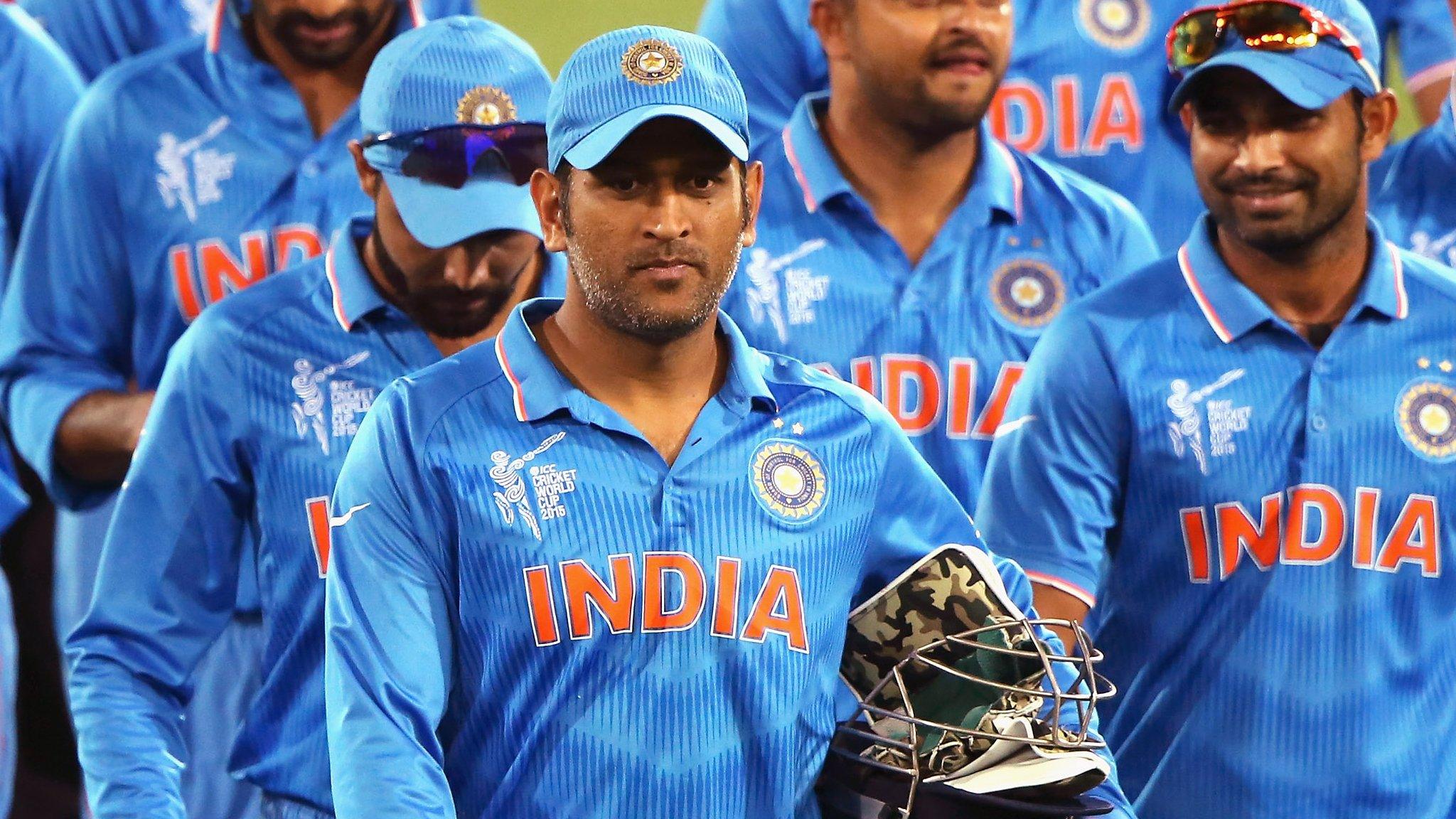Why MS Dhoni's place in cricket history is assured
- Published
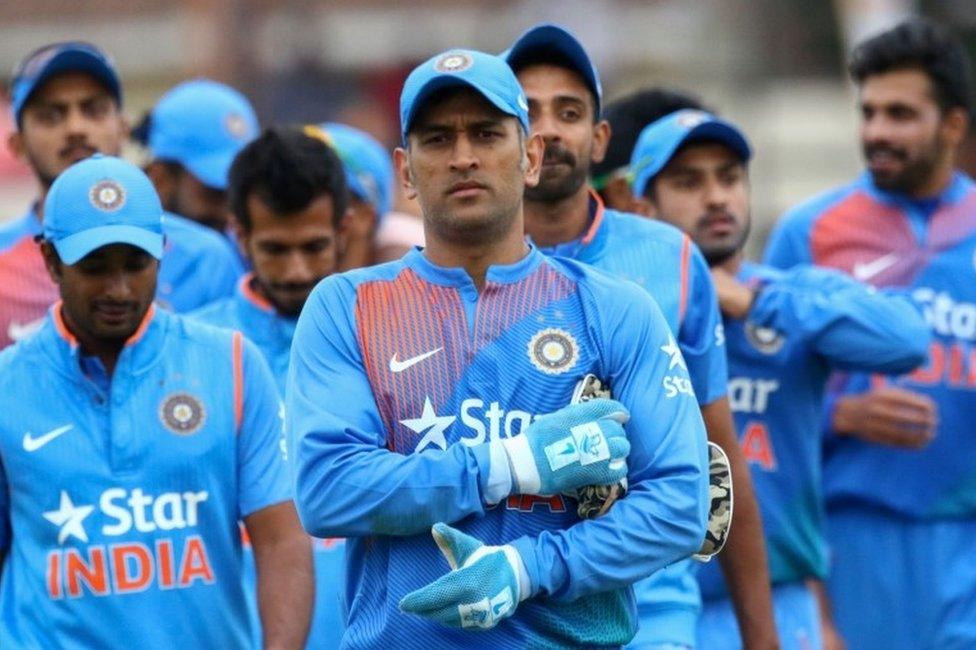
Dhoni was leader of a talented group of players which emerged from small cities and towns
Mahendra Singh Dhoni has stepped down as India's limited-overs captain ahead of the upcoming one-day international series against England. Wisden India editor Suresh Menon looks at what made the wicketkeeper-batsman one of the calmest cricketers in history.
Dhoni was not only a calm captain himself, he was the cause for calmness in others.
He smiled, he showed displeasure, he chatted to bowlers, but while his immediate message was clear, no one could bet on what his thinking was.
To catch the cricket fraternity by surprise twice in two years - first while quitting Test cricket, and now when relinquishing captaincy in one-day internationals - is no mean feat.
Dhoni read the one-day game better than he did Test cricket, and was India's finest captain in the shorter formats.
He led India to victory in three tournaments - World Twenty20 (2007), World Cup (2011) and Champions Trophy (2013) - so the record matched his reputation.
He tended to let the longer game drift occasionally, and seemed to feel the pressure of not losing his early Tests, something that might have rendered him more defensive once the streak was broken.
The shorter formats were different.
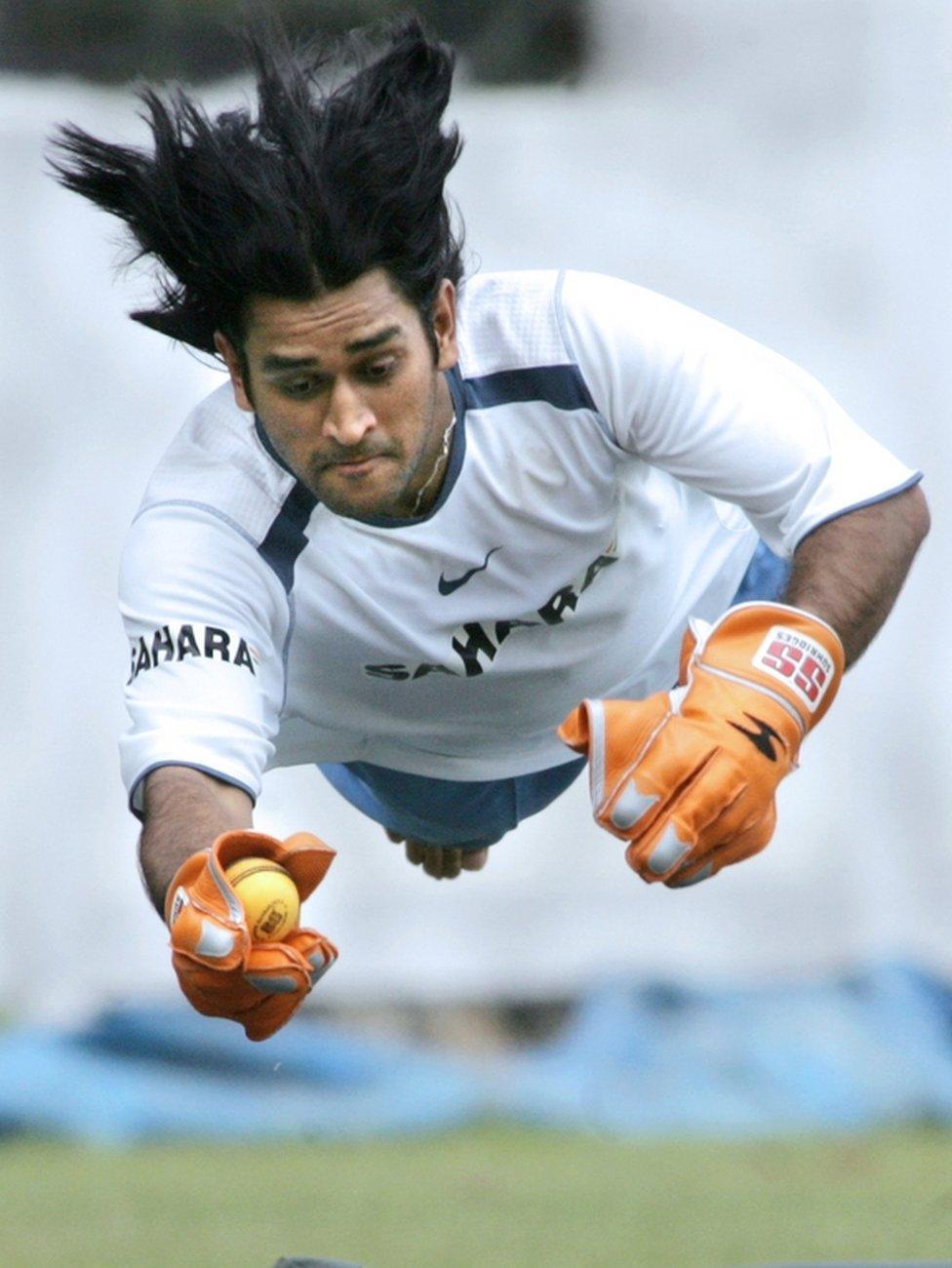
Dhoni's fitness has never been in doubt
He could experiment, even gamble, trusting his finely honed sense of time and place to bring him success.
When he handed the ball to rookie Joginder Sharma in the final of the inaugural World T20, external a decade ago, there might have been a collective gasp around the country.
Yet Sharma claimed the last Pakistan wicket, and as an unintended consequence, the face of cricket was changed forever. The IPL was born,, external as India, Twenty20 deniers became Twenty20 obsessed.
Dhoni, one of the greatest finishers in the modern game, got his timing right once again, pre-empting the inevitable media speculation about his future following the sustained successes of Test skipper Virat Kohli.
Fitness not a problem
The only question to be answered, of course, was whether Dhoni saw himself in the 2019 World Cup team.
He would be 39 then, but fitness was unlikely to be the problem. The concern was over the fact that given that India's fixture list is heavy on Test cricket, he might feel rusty with bat in hand.
Already in recent matches, his legendary finishing abilities had let him down occasionally, and there were few chances to get match fit.
This meant that he could not afford failure, and had to make an impact every time he went out to bat. Youngsters like wicketkeeper-batsman Rishabh Pant, external were beginning to look match-ready. It was thus a pragmatic call, to give up the captaincy, focus on batting and try to rediscover the freedom and form that made him one of the greats.
For Dhoni is nothing if not practical.
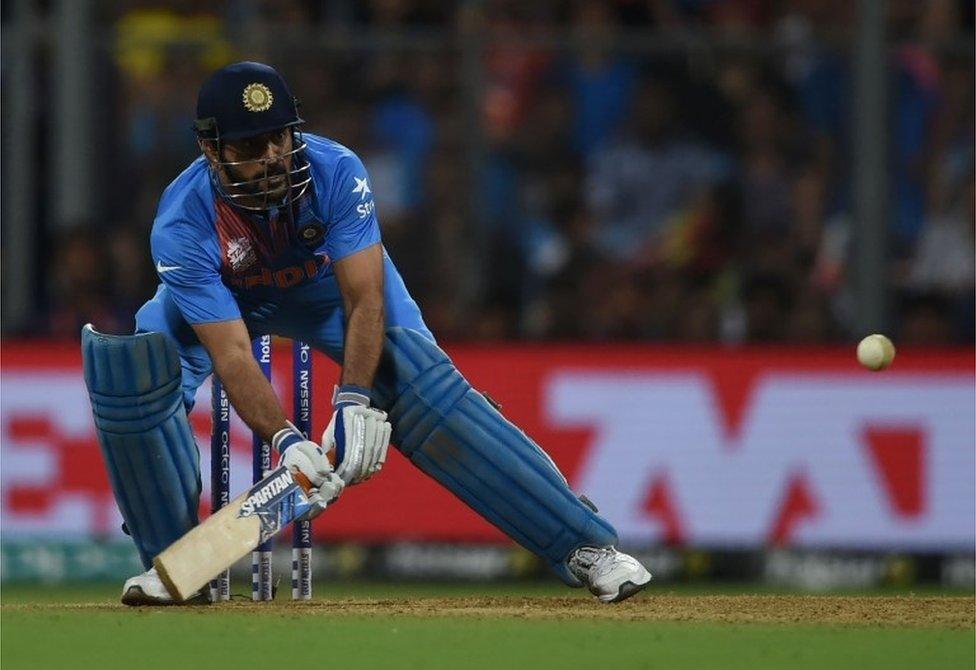
Dhoni was India's finest captain in the shorter formats
Not for him the romance and layered philosophy of the game; he was simple without being simplistic, straightforward without being naive, and knows his mind best.
These qualities served him well as captain, they serve him well as a person.
The long chat he had with the chairman of selectors, MSK Prasad, during the semi-final of the ongoing domestic Ranji Trophy tournament might have convinced him. Perhaps the decision to step down as the one-day captain was made before the chat.
Dhoni's place in history is assured, and not just as a player and captain.
He was leader of a talented group of players which emerged from non-traditional areas.
There was a historical inevitability about this. India's early captains were the local royals. Then came those who worked for the royals like Lala Amarnath, external and Vijay Hazare., external
Then came the middle-class salary-earning city-bred captains (Gulabrai Ramchand,, externalNari Contractor, external, Ajit Wadekar),, external with Tiger Pataudi, external the exception in the 1960s.
Dhoni's arrival was a testimony to the reach of televised cricket.
Youngsters had been fired by the 1983 World Cup win, external by Kapil Dev's India. Suddenly towns like Bharuch, Aligarh, Jalandhar, Palarivattom, Quilon, Rae Bareilly, Khorda and Kodagu began producing international cricketers.
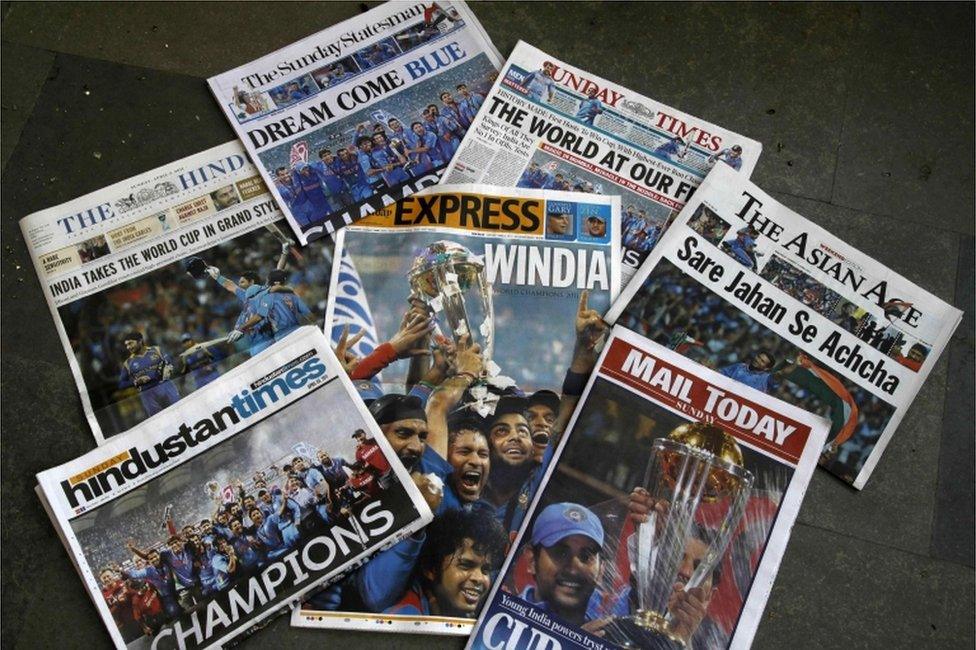
Dhoni led India to its second World Cup win in 2011
Dhoni was eight when Sachin Tendulkar made his debut, yet within months of playing under Dhoni, the senior man was saying, "I am delighted at the way Dhoni conducts himself. He is a balanced guy with a sharp brain. His approach is clear and uncomplicated."
So clear and uncomplicated that when his immediate predecessor Anil Kumble retired, Dhoni carried him off the field on his shoulders.
In Indian cricket, no captain is a hero to his vice-captain, and this must rate as one of the great sights on a cricket field.
'A fluke'
The simple was best demonstrated when he asked spinner Amit Mishra to bowl the last over, external on the second day of the Mohali Test against Australia in 2008, and the bowler dismissed Michael Clarke.
At the press conference later, Dhoni, praised for his acumen, confessed, "It was a fluke." He was to say later, "I want a team that can stand before an advancing truck."
It was a captaincy mantra that he followed, and which saw India rise to the top in both Test and ODI rankings.
Whether Dhoni was bowing to the inevitable by giving up the captaincy, or merely anticipating the future by a fortnight, the fact remains that once again he goes out on his own terms.
He led in 199 matches, winning 110, a figure second only to Allan Border's 165. His 41 wins in Twenty20 are the best by any captain.
The transition, as in Test cricket, will be smooth.
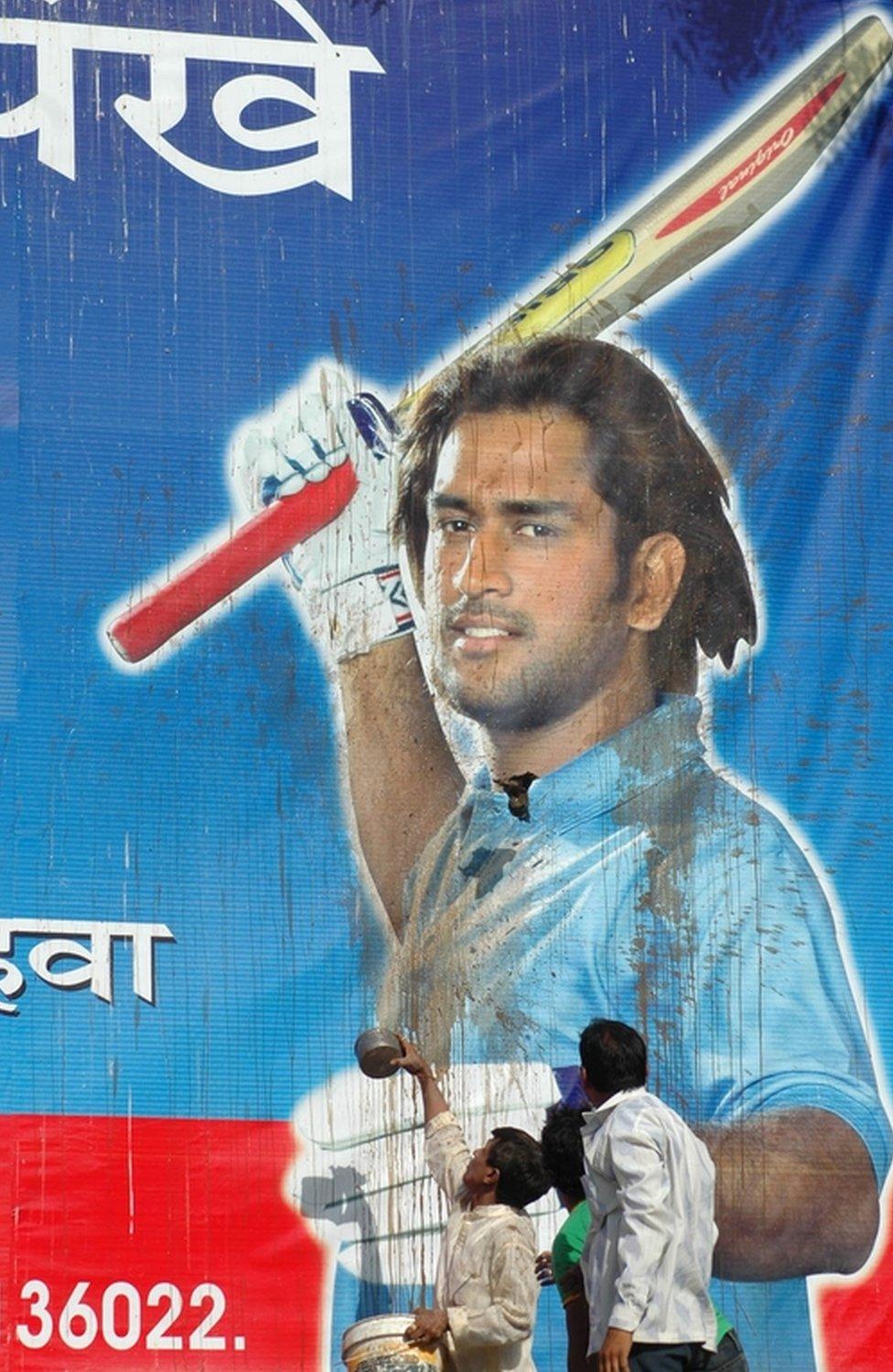
Dhoni is one of the world's richest sportspeople
Virat Kohli is ready, willing and able. He has said he learnt much under Dhoni, and as he prepares to put together the team for 2019, the younger man has enough time to figure out whether the older fits into his scheme of things.
But currently, Dhoni the batsman is a certainty.
Suresh Menon is the Editor of Wisden India Cricketers' Almanack
- Attribution
- Published4 January 2017
